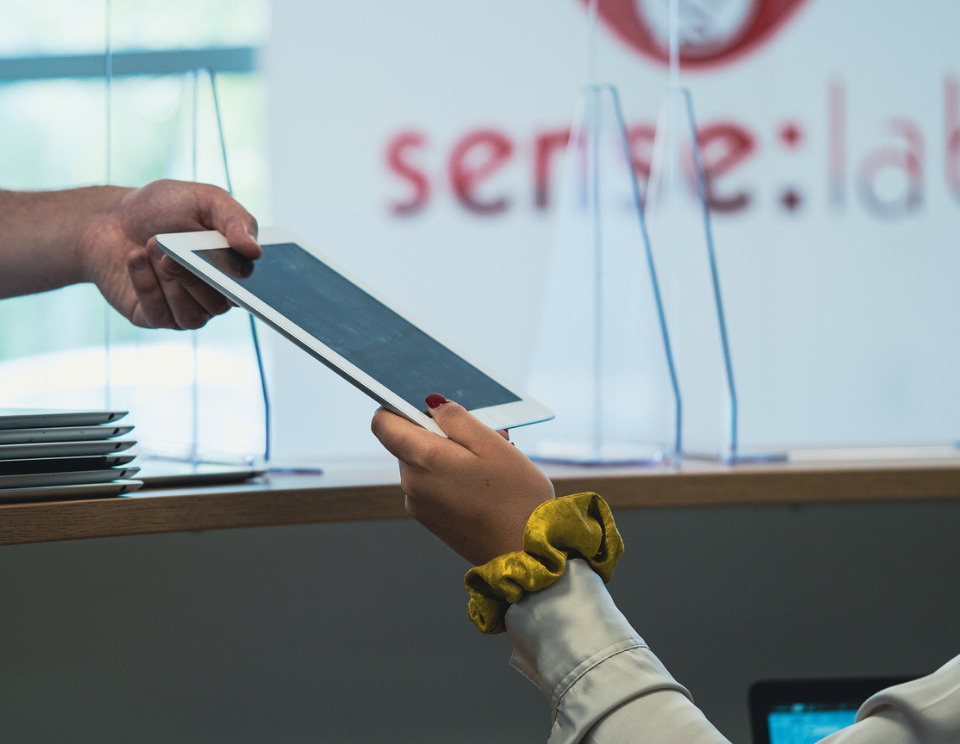We were delighted to sponsor and attend the EuroSense 2024 conference in Dublin. The event provided exciting insights into the evolving trends in product and sensory research, touching on key themes that will shape the industry. Here are some of the standout insights that surfaced, offering actionable takeaways for both researchers and industry leaders alike.
Beyond liking: rethinking traditional metrics
A recurring theme at the conference was the discussion around ‘beyond liking’. While overall liking has long been a dominant metric in sensory and product testing, there’s growing recognition that it doesn’t fully capture consumer behaviour. Liking is easy to measure and compare across studies, but it often oversimplifies the complexities that drive real-world purchase decisions.
What the industry needs is a more nuanced approach. The idea is to focus on success criteria that look beyond just a thumbs-up or thumbs-down from consumers. Attributes like texture, fragrance, and ergonomics, along with emotional and functional responses, should factor more heavily into whether a product will succeed in the market. This approach will provide a more accurate reflection of a product’s potential and help avoid the pitfalls of relying solely on liking metrics, which can be disconnected from real purchase behaviours.
Culture in research: tailoring approaches to global markets
Another significant insight from the conference was the importance of considering cultural differences in research. As the industry expands across global markets, there’s a growing need to adapt research methods to better suit the cultural context of each region. For example, scales or wording that work in one market may not translate well to another. In some cultures, consumers may respond differently to certain metrics or even misunderstand labels on rating scales.
The recommendation from experts is to involve local fieldwork teams earlier in the research design process to ensure that questionnaires are culturally relevant and appropriate. This step not only improves data quality but also leads to more meaningful insights when comparing results across diverse markets.
AI and open-ended data: unlocking deeper insights
Artificial Intelligence (AI) has been making waves across many industries, and sensory research is no exception. One of the most promising applications of AI discussed at the conference was its ability to analyse open-ended data more quickly and with greater depth. Traditionally, coding open responses was a manual, time-consuming process. Now, AI allows researchers to process vast amounts of qualitative data at scale, uncovering granular insights that may have been previously overlooked.
This approach is particularly useful in sentiment analysis, where AI can detect nuanced emotions behind consumer feedback. It’s an area where researchers can now move beyond surface-level insights and tap into more detailed consumer perceptions, allowing for more precise product development.
Embracing agility in research: speed meets precision
Agility in research was another hot topic. As companies strive to move faster without sacrificing quality, there’s a need for both discipline and consistency. The key takeaway was that while agile methods can accelerate research timelines, they must be balanced with a focus on maintaining the rigour and accuracy of data collection.
Consistency in headline metrics allows researchers to model data effectively and build robust normative databases, even when working under tight deadlines.
Sustainability: taking centre stage in product development
Sustainability continues to be a key driver in product development, particularly in packaging. While sustainability was once a buzzword, it has now become a central focus for many companies, especially as governments impose stricter regulations. The challenge is clear: how to create sustainable packaging solutions that don’t compromise on performance or significantly increase costs.
What’s encouraging is the role that sensory research can play in finding a balance between sustainability and consumer satisfaction. By engaging consumers through product testing, researchers can help companies understand what trade-offs consumers are willing to make and identify opportunities for more eco-friendly solutions that still deliver on key sensory attributes.
The role of research in driving innovation
Perhaps the most inspiring takeaway from the conference was the role that research teams can play in driving broader innovation within organisations. Whether it’s leading the charge on sustainability or challenging traditional metrics, research departments have the potential to guide companies towards smarter, more consumer-focused product development strategies.
By embracing new tools like AI, considering cultural context, and pushing the boundaries of conventional metrics, researchers can become essential partners in the innovation process.
Final thoughts: practical takeaways for 2025
Looking ahead to 2025, there are several practical tips that can help researchers and product developers succeed:
- Challenge success criteria: Go beyond relying on liking as the sole metric. Consider additional attributes that may better predict market success.
- Consider culture: Involve local teams early to ensure questionnaires are culturally appropriate, improving the reliability of data in global research.
- Use AI where it counts: Leverage AI to enhance the analysis of open-ended data, unlocking deeper consumer insights faster.
- Prioritise sustainability: Continue to explore how sensory research can contribute to more sustainable packaging and product solutions.
- Balance agility with consistency: Strive for faster research timelines while maintaining data quality and ensuring consistency in key metrics.
- The sensory research industry is at an exciting juncture, with new technologies and methodologies reshaping the way we approach product development. By staying ahead of these trends, companies can not only keep pace but lead the way into the future.
If you would like to learn more about our time at EuroSense 2024, check out the latest episode of the Beyond the Yonder Podcast, or contact [email protected] to talk through your research needs.


Stay In Touch